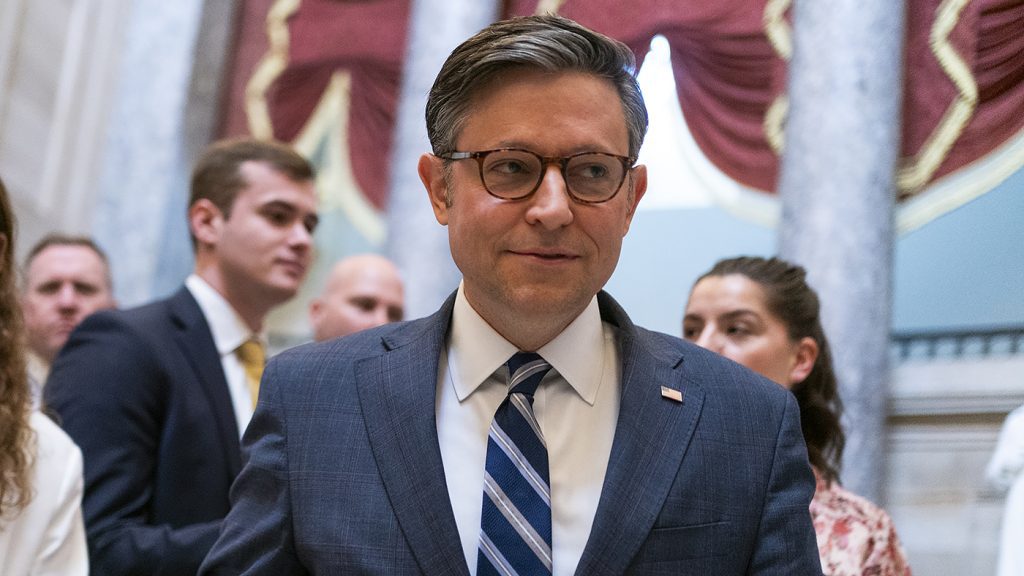Speaker Mike Johnson (R-La.) stated that the House will use all possible means to pressure the Senate to pass a bill that might prohibit TikTok. He made this statement after the House approved the legislation in a strongly bipartisan vote.
Johnson’s statement, made during the House GOP retreat in West Virginia, followed non-committal comments from Senate Majority Leader Chuck Schumer (D-N.Y.) about bringing the bill passed by the House to the Senate floor for a vote.
Johnson told New York Post reporter Josh Christenson at the retreat that they will use all the pressure they can, because they believe it's the right thing to do, when asked about the TikTok bill.
In a 352-65 vote on Wednesday, the House approved the Protecting Americans From Foreign Adversary Controlled Applications Act, which would require ByteDance, the China-based company that owns TikTok, to sell the app or face being banned from U.S. app stores and web hosting services. ByteDance would have about five months to divest once the bill becomes effective.
Despite the overwhelming House vote, it is uncertain how the bill will fare in the Senate. Schumer stated on Wednesday, after the House approved the bill, that “The Senate will review the legislation when it comes over from the House.”
Schumer had a similar message on Tuesday, telling reporters, “Let’s see what the House does.”
At the time, he added, “I’ll have to consult and intend to consult with my relevant committee chairmen to see what their views would be.”
President Biden has expressed willingness to sign the bill if it reaches his desk.
Efforts to ban TikTok have sparked a heated debate in Congress, with supporters raising concerns about national security and opponents arguing about free speech.
Johnson, who supported the bill, addressed the free speech concerns on Wednesday, dismissing the notion that banning TikTok violates the First Amendment.
On Wednesday, Johnson, who voted for the bill, rejected the argument that banning TikTok violates the First Amendment, emphasizing that it's about the conduct, not the content, and is a serious threat to national security.









